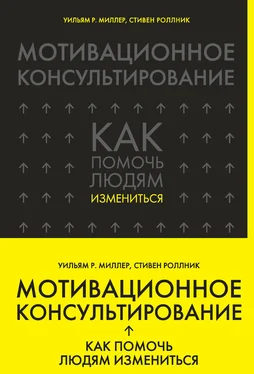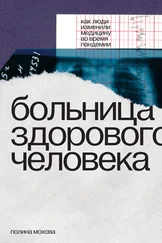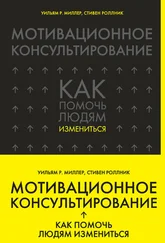Schermer, C. R. (2005). Feasibility of alcohol screening and brief intervention. Journal of Trauma: Injury, Infection, and Critical Care, 59(Suppl. 3), S119– S123.
Schermer, C. R., Moyers, T. B., Miller, W. R., & Bloomfield, L. A. (2006). Trauma center brief interventions for alcohol disorders decrease subsequent driving under the influence arrests. Journal of Trauma, 60(1), 29–34.
Schermer, C. R., Qualls, C. R., Brown, C. L., & Apodaca, T. R. (2001). Intoxicated motor vehicle passengers: An overlooked at-risk population. Archives of Surgery, 136, 1244–1248.
Schmidt, U., & Treasure, J. (1997). Clinician’s guide to getting better bit(e) by bit(e): A survival kit for sufferers of bulimia nervosa and binge eating disorders. Hove, UK: Psychology Press/Erlbaum.
Schmiege, S. J., Broaddus, M. R., Levin, M., & Bryan, A. D. (2009). Randomized trial of group interventions to reduce HIV/STD risk and change theoretical mediators among detained adolescents. Journal of Consulting and Clinical Psychology, 77(1), 38–50.
Scholl, M. B., & Schmitt, D. M. (2009). Using motivational interviewing to address college client alcohol abuse. Journal of College Counseling, 12(1), 57–70.
Scott, C. K., & Dennis, M. L. (2009). Results from two randomized clinical trials evaluating the impact of quarterly recovery management checkups with adult chronic substance users. Addiction, 104(6), 959–971.
Secades-Villa, R., Fernande-Hermida, J. R., & Arnaez-Montaraz, C. (2004). Motivational interviewing and treatment retention among drug user patients: A pilot study. Substance Use and Misuse, 39(9), 1369–1378.
Sellman, J. D., MacEwan, I. K., Deering, D. D., & Adamson, S. J. (2007). A comparison of motivational interviewing with non-directive counseling. In G. Tober & D. Raistrick (Eds.), Motivational dialogue: Preparing addiction
professionals for motivational interviewing practice (pp. 137–150). New York: Routledge.
Sellman, J. D., Sullivan, P. F., Dore, G. M., Adamson, S. J., & MacEwan, I. (2001). A randomized controlled trial of motivational enhancement therapy (MET) for mild to moderate alcohol dependence. Journal of Studies on Alcohol, 62(3), 389–396.
Senft, R. A., Polen, M. R., Freeborn, D. K., & Hollis, J. F. (1997). Brief intervention in a primary care setting for hazardous drinkers. American Journal of Preventive Medicine, 13 (6), 464–470.
Severson, H. H., Peterson, A. L., Andrews, J. A., Gordon, J. S., Cigrang, J. A., Danaher, B. G., et al. (2009). Smokeless tobacco cessation in military personnel: A randomized controlled trial. Nicotine and Tobacco Research, 11(6), 730–738.
Sherman, D. A. K., Nelson, L. D., & Steele, C. M. (2000). Do messages about health risks threaten self?: Increasing the acceptance of threatening health messages via self-affirmation. Personality and Social Psychology Bulletin, 26(9), 1046–1058.
Sherman, M. D., Fischer, E., Bowling, U. B., Dixon, L., Ridener, L., & Harrison, D. (2009). A new engagement strategy in a VA-based family psychoeducation program. Psychiatric Services, 60(2), 254–257.
Simmons, R. G., Marine, S. K., & Simmons, R. L. (1987). Gift of life: The effect of organ transplantation on individual, family, and societal dynamics (2nd ed.). New Brunswick, NJ: Transaction.
Simon, S. B. (1978). Negative criticism: Its swath of destruction and what you can do about it. Niles, IL: Argus Communications.
Sinclair, K. S., Campbell, T. S., Carey, P. M., Langevin, E., Bowser, B., & France, C. R. (2010). An adapted postdonation motivational interview enhances blood donor retention. Transfusion, 50(8), 1778–1786.
Slagle, D. M., & Gray, M. J. (2007). The utility of motivational interviewing as an adjunct to exposure therapy in the treatment of anxiety disorders. Professional Psychology: Research and Practice, 38(4), 329–337.
Slavet, J. D., Stein, L. A., Klein, J. L., Colby, S. M., Barnett, N. P., & Monti, P. M. (2005). Piloting the family check-up with incarcerated adolescents and their parents. Psychological Services, 2(2), 123–132.
Smart, R. G. (1974). Employed alcoholics treated voluntarily and under constructive coercion: A follow-up study. Quarterly Journal of Studies on Alcohol, 35, 196–209.
Smith, D. C., Hall, J. A., Jang, M., & Arndt, S. (2009). Therapist adherence to a motivational-interviewing intervention improves treatment entry for substance-misusing adolescents with low problem perception. Journal of Studies on Alcohol and Drugs, 70(1), 101–105.
Smith, D. E., Heckemeyer, C. M., Kratt, P. P., & Mason, D. A. (1997). Motivational interviewing to improve adherence to a behavioral weight-control program for older obese women with NIDDM: A pilot study. Diabetes Care, 20 (1), 52–54.
Smith, J. E., & Meyers, R. J. (2004). Motivating substance abusers to enter treatment: Working with family members. New York: Guilford Press.
Snyder, C. R. (1994). The psychology of hope. New York: Free Press.
Sobell, L. C., Sobell, M. B., & Agrawal, S. (2009). Randomized controlled trial of a cognitive-behavioral motivational intervention in a group versus individual format for substance use disorders. Psychology of Addictive Behaviors, 23(4), 672–683.
Soria, R., Legido, A., Escolano, C., Lopez Yeste, A., & Montoya, J. (2006). A randomised controlled trial of motivational interviewing for smoking cessation. British Journal of General Practice, 56(531), 768–774.
Spirito, A., Monti, P. M., Barnett, N. P., Colby, S. M., Sindelar, H., Rohsenow, D. J., et al. (2004). A randomized clinical trial of a brief motivational intervention for alcohol-positive adolescents treated in an emergency department. Journal of Pediatrics, 145(3), 396–402.
Squires, D. D., & Hester, R. K. (2004). Using technical innovations in clinical practice: The Drinker’s Check-up software program. Journal of Clinical Psychology, 60(2), 159–169.
Steele, C. M. (1988). The psychology of self-affirmation: Sustaining the integrity of the self. Advances in Experimental Social Psychology, 21, 261–302.
Stein, L. A. R., Colby, S. M., Barnett, N. P., Monti, P. M., Golembeske, C., & Lebeau-Craven, R. (2006). Effects of motivational interviewing for incarcerated adolescents on driving under the influence after release. American Journal on Addictions, 15(Suppl. 1), S50–S57.
Stein, M. D., Charuvastra, A., Maksad, J., & Anderson, B. J. (2002). A randomized trial of a brief alcohol intervention for needle exchangers (BRAINE). Addiction, 97(6), 691–700.
Stephenson, W. (1953). The study of behavior: Q-technique and its methodology. Chicago: University of Chicago Press.
Stitzer, M., & Petry, N. (2006). Contingency management for treatment of substance abuse. Annual Review of Clinical Psychology, 2, 411–434.
Stitzer, M. L., Petry, N. M., & Peirce, J. (2010). Motivational incentives research in the National Drug Abuse Treatment Clinical Trials Network. Journal of Substance Abuse Treatment, 38(Suppl. 1), S61–S69.
Stott, N., Rollnick, S., Rees, M., & Pill, R. (1995). Innovation in clinical method: Diabetes care and negotiating skills. Family Practice, 12(4), 413–418.
Stotts, A. L., Schmitz, J. M., Rhoades, H. M., & Grabowski, J. (2001). Motivational interviewing with cocaine-dependent patients: A pilot study. Journal of Consulting and Clinical Psychology, 69(5), 858–862.
Strang, J., & McCambridge, J. (2004). Can the practitioner correctly predict outcome in motivational interviewing? Journal of Substance Abuse Treatment, 27(1), 83–88.
Читать дальше
Конец ознакомительного отрывка
Купить книгу












